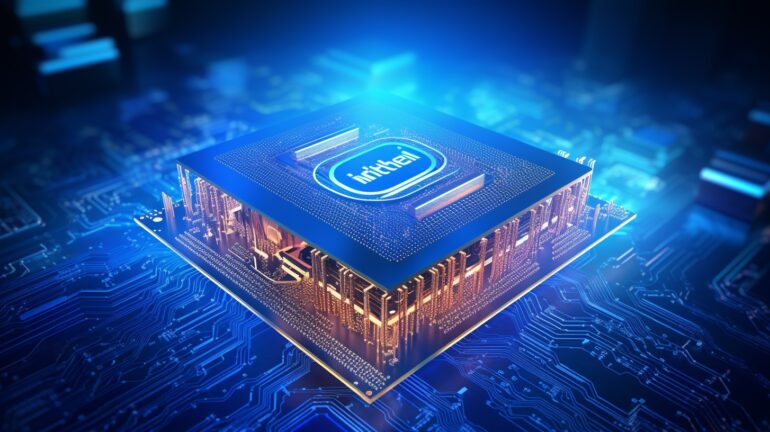TL;DR:
- Intel is launching an AI Acceleration Program for PC software.
- The program aims to bring AI capabilities into Intel’s 14th-gen “Meteor Lake” Core Ultra chips for laptops.
- It seeks to convince consumers that AI should run locally on their PCs.
- Intel is urging developers to write natively for their AI engine (NPU) or use the OpenVINO developer kit.
- Prominent developers like Adobe, DeepRender, and Topaz are highlighted for their AI features.
- Some developers plan to combine local and cloud-based AI processing.
- Intel envisions consumers associating “Intel Inside” with “AI Inside.”
Main AI News:
In an era where artificial intelligence has found its home in the cloud with the likes of Bing Chat, Google Bard, Windows Copilot, and ChatGPT, Intel is making a bold move to shift the paradigm. The tech giant, known for its cutting-edge innovations, is ushering in a new era of AI acceleration, bringing it closer to home – inside your PC.
This strategic shift comes as Intel introduces AI capabilities within its 14th-gen “Meteor Lake” Core Ultra chips for laptops, which are set to debut on December 14th. Intel’s AI Acceleration Program aims to convince consumers that AI should not solely reside in the cloud but also run seamlessly on their personal computers.
However, the challenge ahead is formidable. Most consumers are not concerned with where AI functions are processed, and Intel is keenly aware of this fact. They have been diligently conveying their message at the Intel Innovation conference, earnings reports, and beyond. Their mission: to inspire developers to either develop software natively for Intel’s AI engine, known as the NPU (Neural Processing Unit) or to harness the power of the OpenVINO developer kit, an open-source resource initiated by Intel.
While not all developers will explicitly mention the AI capabilities of their software, some prominent names are stepping up. Adobe, Audacity, BlackMagic, BufferZone, CyberLink, DeepRender, MAGIX, Rewind AI, Skylum, Topaz, VideoCom, Webex, Wondershare Filmora, XSplit, and Zoom have been highlighted by Intel.
Among these, DeepRender, a company specializing in file compression through AI, claims that AI will boost its video compression capabilities by up to fivefold, according to Chri Besenbruch, co-founder and CEO. Topaz Labs, known for AI-powered photo upscaling, has also pledged to leverage the NPU to enhance its deep learning models.
XSplit, the creator of a Vcam app for webcam background manipulation, asserts that tapping into the NPU will result in significantly improved performance. Andreas Hoye, Chief Executive at XSplit, stated that utilizing a larger AI model on the Intel NPU reduces background removal inaccuracies in live video by up to 30%, simultaneously lightening the CPU and GPU load.
However, for many developers, the NPU is simply one of many tools in their arsenal. This aligns with Intel’s vision that a combination of NPU, GPU, and CPU can provide the best and quickest AI acceleration for specific tasks.
Furthermore, some developers are adopting a hybrid approach, combining local processing with cloud-based AI. Adobe’s Generative Fill, for instance, employs cloud AI to suggest new scenes based on text descriptions entered by the user, but the actual application of these scenes to an image takes place on the user’s PC.
In Intel’s grand scheme, it’s all about getting consumers to think of “Intel Inside” and “AI Inside” in the same breath. As they prepare to launch Meteor Lake, they are forging ahead to make AI an integral part of your personal computing experience.
Conclusion:
Intel’s strategic push to bring AI processing to local PCs signifies a significant shift in the consumer computing landscape. By collaborating with a multitude of developers, Intel is not only making AI more accessible but also encouraging software innovation in this domain. The hybrid approach, utilizing NPU, GPU, and CPU, positions Intel to stay competitive as AI continues to shape the future of personal computing. This initiative reinforces Intel’s commitment to becoming synonymous with both hardware and AI capabilities in the minds of consumers.

